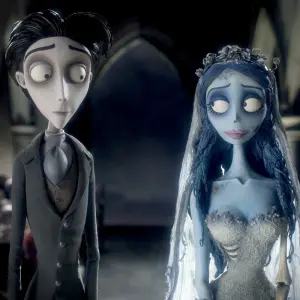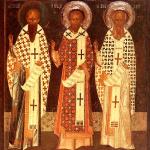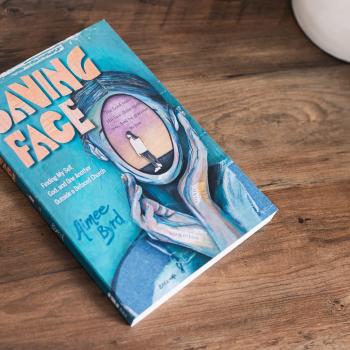Good society is generally certain there is something wrong with the mentality of evangelicals. We’re only weeks before an election that could see Donald Trump back into the Oval, but the verdict is already in on evangelicals. They think wrong and vote wrong.
Should Trump win, left leaning outlets of the press will lay heft blame at the feet of evangelicals (though Trump also draws the Catholic vote by a slim majority) –lamenting that so many religious actors could fail to be proper democratic citizens. This general despair of evangelicals’ ability to think and vote well sounds to me like a crescendo of Mark Noll’s influential The Scandal of the Evangelical Mind, first released in 1994 and rereleased in 2022. In Scandal, Noll laments how the anti-intellectual roots of the moment have corrupted the entire evangelical project. Now, a greek chorus of journalist has joined in: evangelical idiocy is corrupting the whole nation. Even should Vice President Harris win, the evidence is damning: evangelicals make poor democratic citizens.
In this vein of commentary on the failures, the ineptitudes, of the evangelical mind, Pentecostalism has now emerged as the darker, more sinister side of evangelical “thought.” If Noll has lamented the evangelical mind as a kind of blank, Pentecostalism figures here as a phenomenal upsurge of primitive thinking and primary processes that together overwhelm the (already poorly defined) evangelical mind and make impossible any evangelical intellectual life or project. Where evangelicals read as poor citizens, Pentecostals (with their marked enthusiasm for Trump and Christian Nationalism) read as active dangers, virulent actors, to the American project.
In this context, I was recently asked to explain the thought-life of Pentecostals.
The reporter was trying to make sense of the growing tendencies of Pentecostals (and charismatics), including ethnic minority adherents, to vote conservatively. Explaining this is a real challenge: how to address the character and activities of millions of Christians, given the bad faith that trenchant polarization has engendered in most readers. In answering the reporter, I ended up moving toward newish perspective on how to appraise the Pentecostal mind. It’s short because that’s how the newspaper people like their explanations:
_____________________________________________________________
Reporter: Would it be fair to describe Pentecostalism as a style rather than a formal system of thought?
Me: That’s a great question. In its system of thought Pentecostalism is both tragic and romantic.
The mentality of the movement is shaped by New Testament visions about the end of human history from the book of Revelation. No one better articulates this plot better than John Hagee, pastor of San Antonio’s massive Cornerstone Church. For decades, Hagee has been preaching about the “end times” during which “the nations” will turn on Israel and an Anti-Christ will rise to lead a “one world government” whose aim only seems to be “peace.” This is the tragic, even scary, strain of Pentecostal thought: they expect the political world to unite against Israel, for this to lead to war and death; they also expect malign forces to attempt to consolidate a global government. Pentecostals have longed been wary, then, of organizations like the United Nations and the International Court of Justice which are just proxies for globalized government. The current war in Gaza fits right into this framework– and it is both scary and tragic. This will cause Pentecostals to lean toward the candidate they see as a fighter in fraught geopolitics and a reliable ally for Israel.
The romantic aspects of Pentecostal concern the “Bride of Christ.” In all of the above plot points, through global war and devastation, the Jewish and Christian God YHWH is working on behalf of His people who, altogether, are figuratively the Bride. In their account, all true Christians and many Jews are/will be part of the Bride of Christ. God is working on their behalf to protect them, as a group, from the defiling cultures and politics of the rest of the world. This narrative is very like the one in the book of Esther, which features a marriage plot that rescues God’s people. The romantic aspect of Pentecostal thought is the source of its inegalitarian character. Being a bridal figure is an exclusive claim; not everyone is part of the Bride of Christ. Politically, this bridal status means Israel and “the people of God” are the true protagonists of every geopolitical situation. This plotline is also dualistic: there are people who are enemies of God and on the wrong side of salvation history who will most likely die. When Pentecostals worship, they do so in a romantic way– prioritizing feeling and aiming toward intimacy with the Spirit.
Taking these narratives together, Pentecostals will vote for the candidate who stands readiest too support their interests in a fraught plotline.
____________________________________________________
But what does this say about their minds and what kind of voters they are? Or as the reporter asked me: what is their system of thought?
Pentecostals and charismatics are shaped by the bible’s apocalyptic literary tradition, which is both tragic and romantic. These narratives help explain their electoral preferences.
When I think about the intellectual lives of Pentecostals (and charismatics), I think of people who adopt a tragic-romantic posture toward the world, with tragic and romantic metanarratives guiding their thinking. I don’t take t his to be a dearth of thought, exactly. The French writer Chateaubriand and the English poet Wordsworth were both romantics. I take Lord Tennyson’s Lady of Shalott and Tim Burton’s Corpse Bride to, both, be inflected with a tragic bridal romanticism. (Both, by the way, are derived from significantly older source materials.) Tragic romantic viewpoints– with origins in oral traditions, guided by literary traditions and now expressed in films–credibly represent a tradition of thought. If readers want to appraise the thought-life of Pentecostals, we might ask: What cultural work have such tragic bridal narratives done? What kind of work might they presently being doing?
his to be a dearth of thought, exactly. The French writer Chateaubriand and the English poet Wordsworth were both romantics. I take Lord Tennyson’s Lady of Shalott and Tim Burton’s Corpse Bride to, both, be inflected with a tragic bridal romanticism. (Both, by the way, are derived from significantly older source materials.) Tragic romantic viewpoints– with origins in oral traditions, guided by literary traditions and now expressed in films–credibly represent a tradition of thought. If readers want to appraise the thought-life of Pentecostals, we might ask: What cultural work have such tragic bridal narratives done? What kind of work might they presently being doing?
By taking Pentecostal eschatology about the Bride of Christ as a species of cultural discourse, by recognizing that participates in a longer tradition of tragic romanticism, we can appraise, not what is missing from the evangelical mind, but what is there. Like the Bride in Burton’s Corpse Bride, Pentecostals in the US are driven by a romance plot, witness their worship!, but for their societies both brides appear ghoulish and deeply troublesome.
If we know them as political ghouls, what is their provenance? They do not arise to threaten the nation ex-nihilo.
To answer this we can look to their archives, their narratives, the practices, their mood: Pentecostal politics are ex-profundo.
On the eve of an election that has decent chance of giving us a second Trump term, we might ask:
Why are pentecostals giving body to this kind of plotline, this posture and mood, into the life of our body politic, now? Why are we thus haunted?
The life of the mind that Noll laments is missing in evangelicalism seems actually to be a certain kind of mind– positivist, traditioned, aiming for objectivity, committed to critical thinking. Noll writes,“By an evangelical ‘life of the mind’ I mean…the effort to think like a Christian—to think within a specifically Christian framework—across the whole spectrum of modern learning” (7) I too love these qualities and this project. But Pentecostals think very differently than do academics; they have their thought traditions that are predicated on much older thought traditions. It would be, I think, a mistake to characterize this traditioning as having no life of the mind at all. Instead: what advantages and disadvantages, what challenges, do these thought traditions pose for the democratic project?
















